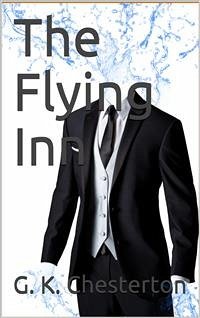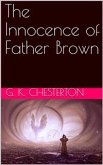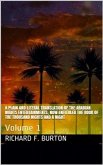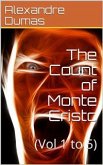A more mature work than The Napoleon of Notting Hill, The Flying Inn is an examination (and indictment) of authoritarianism and progressivism, and an expression of distrust for power in and of itself. Written on the eve of World War I (when the European empires’ chickens first came home to roost), …TFI proved even more prophetic than the former. Set in a UK besieged by theosophists, vegetarians, rabid xenophiles and other turn-of-the-century fruitcakes, TFI accurately presaged the modern, NuLab-dominated, post-British Britain we modern Americans have ironically (and hypocritically) come to pity.
An allegory, romance, and expression of populist defiance all at once, TFI chronicles the adventures of one Humphrey Pump (an English pub owner) and his friend, Captain Patrick Dalroy -- a truculent, red-bearded Irish giant in the service of a decaying, increasingly ridiculous and dwarfish Britain. Opposing them is a cast of silly (but sinister) villains -- villains rendered all the more sinister by their inability to perceive their own silliness.
The novel begins with one of the protagonists, Captain Patrick Dalroy (an Irishman serving in the British navy) resigning his commission at the conclusion of a ridiculous, one-sided treaty with the Turks, courtesy of his nemesis, Lord Ivywood.
Dalroy then returns to England and renews his acquaintance with his friend, Humphrey Pump. When the Ivywood-dominated government, under the influence of a Turkish mystic and pseudo-scholar (my bone of contention, incidentally: no son of the grey or red wolf –however strident -- ever influenced the UK as profoundly as even the most transparently fraudulent cow-worshipper of the Subcontinent) prohibits the sale of alcohol, Pump and Dalroy load an immense hoop of cheese and a keg of rum into a donkey cart and hit the road, dispensing good cheer (and populist defiance) the length and breadth of the country.
An allegory, romance, and expression of populist defiance all at once, TFI chronicles the adventures of one Humphrey Pump (an English pub owner) and his friend, Captain Patrick Dalroy -- a truculent, red-bearded Irish giant in the service of a decaying, increasingly ridiculous and dwarfish Britain. Opposing them is a cast of silly (but sinister) villains -- villains rendered all the more sinister by their inability to perceive their own silliness.
The novel begins with one of the protagonists, Captain Patrick Dalroy (an Irishman serving in the British navy) resigning his commission at the conclusion of a ridiculous, one-sided treaty with the Turks, courtesy of his nemesis, Lord Ivywood.
Dalroy then returns to England and renews his acquaintance with his friend, Humphrey Pump. When the Ivywood-dominated government, under the influence of a Turkish mystic and pseudo-scholar (my bone of contention, incidentally: no son of the grey or red wolf –however strident -- ever influenced the UK as profoundly as even the most transparently fraudulent cow-worshipper of the Subcontinent) prohibits the sale of alcohol, Pump and Dalroy load an immense hoop of cheese and a keg of rum into a donkey cart and hit the road, dispensing good cheer (and populist defiance) the length and breadth of the country.









